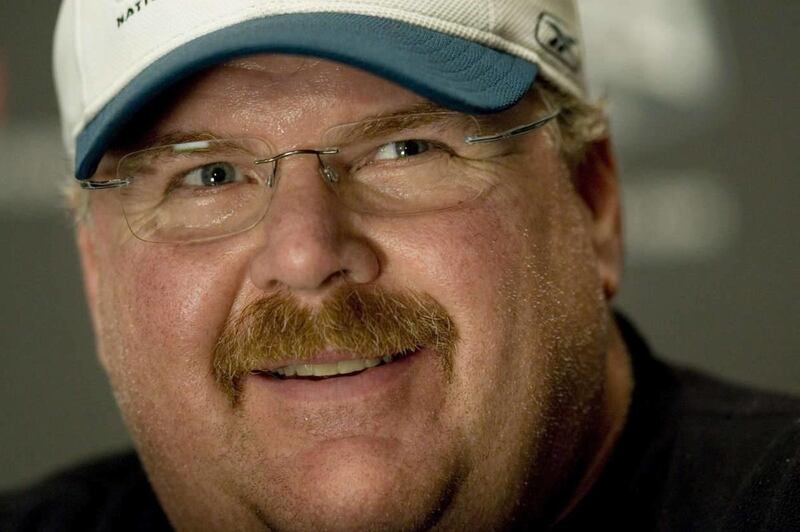Several Latter-day Saints — from Philadelphia Eagles football coach Andy Reid to BYU religion professor Robert L. Millet to singer/dancer/actress Julianne Hough — have been talking about Mormonism lately, trying to explain and even defend The Church of Jesus Christ of Latter-day Saints.
Each has done so in his or her own way.
Reid hosted a community symposium at an LDS meetinghouse in Philadelphia recently. His intent, he said, was to respond to the "unprecedented increase in curiosity about Mormons" and to try to clear up "a lot of misconceptions about Mormonism."
Reid didn't actually address those misconceptions during the symposium — he introduced attendees to several panelists who handled the bulk of the misconception addressing. But he did speak to reporter Julie Shaw about his conversion to the LDS Church during his football-playing days at BYU.
"I went there for a great education and to play football," Reid said, adding that as he learned more about the church he decided he "liked the lifestyle. I liked the gospel part of it; I liked the family part of it."
He said he also liked a certain female Mormon named Tammy, whom he eventually married.
Reid also spoke enthusiastically about the new temple to be built in Philadelphia, indicating "for all the members of the church, it's a great thing to be able to do the Lord's work and enjoy the reverence that takes place in the temple."
While Reid was hosting his symposium in Philadelphia, Dr. Millet was taking his shot at answering the question, "Are Mormons Christian?" for readers of the Washington Post.
"The Church of Jesus Christ of Latter-day Saints is built upon the person, power and teachings of Jesus Christ," Millet wrote. "He is our King, our Lord and our God."
Still, he said, "because Mormons do not hold to the decisions and formulations of the post-biblical church councils, and because we believe in an expanded canon of scripture, some do not consider us to be a part of 'orthodox' Christianity. They are correct," Millet wrote. "We believe a Christian is one who follows Jesus. For us, one is a Christian not simply because he or she possesses a 'correct' theology. One's Christian faith ought to be manifest in the way he speaks to and treats others.
"As Mormons," he continues, "we ask to be permitted to define ourselves and explain what we really believe."
Two writers with LDS backgrounds — Ronald B. Scott and James Picht — take readers behind the scenes of life in the LDS Church with accurate, well-written pieces about "How Mormon Bishops Lead" and the LDS missionary program. In both cases, the writers use Mitt Romney's religious background — as a bishop and as a missionary — as discuss the realities of life for the LDS Church's lay leadership and volunteer missionary force, respectively.
And even though the Sandy, Utah-native Hough acknowledges she's "not as active in (the LDS Church) as some people are," she tells Interview magazine in its June/July 2012 issue that "the church has taught me great life lessons.
"The thing that I loved about growing up Mormon is that I had morals and standards instilled in me as a kid — like, you need to be a nice person, and a thoughtful person, and if anybody is trying to dog that, then I think that's rude," she says. "It's, like, don't you want to raise your kids with that kind of mentality?"



